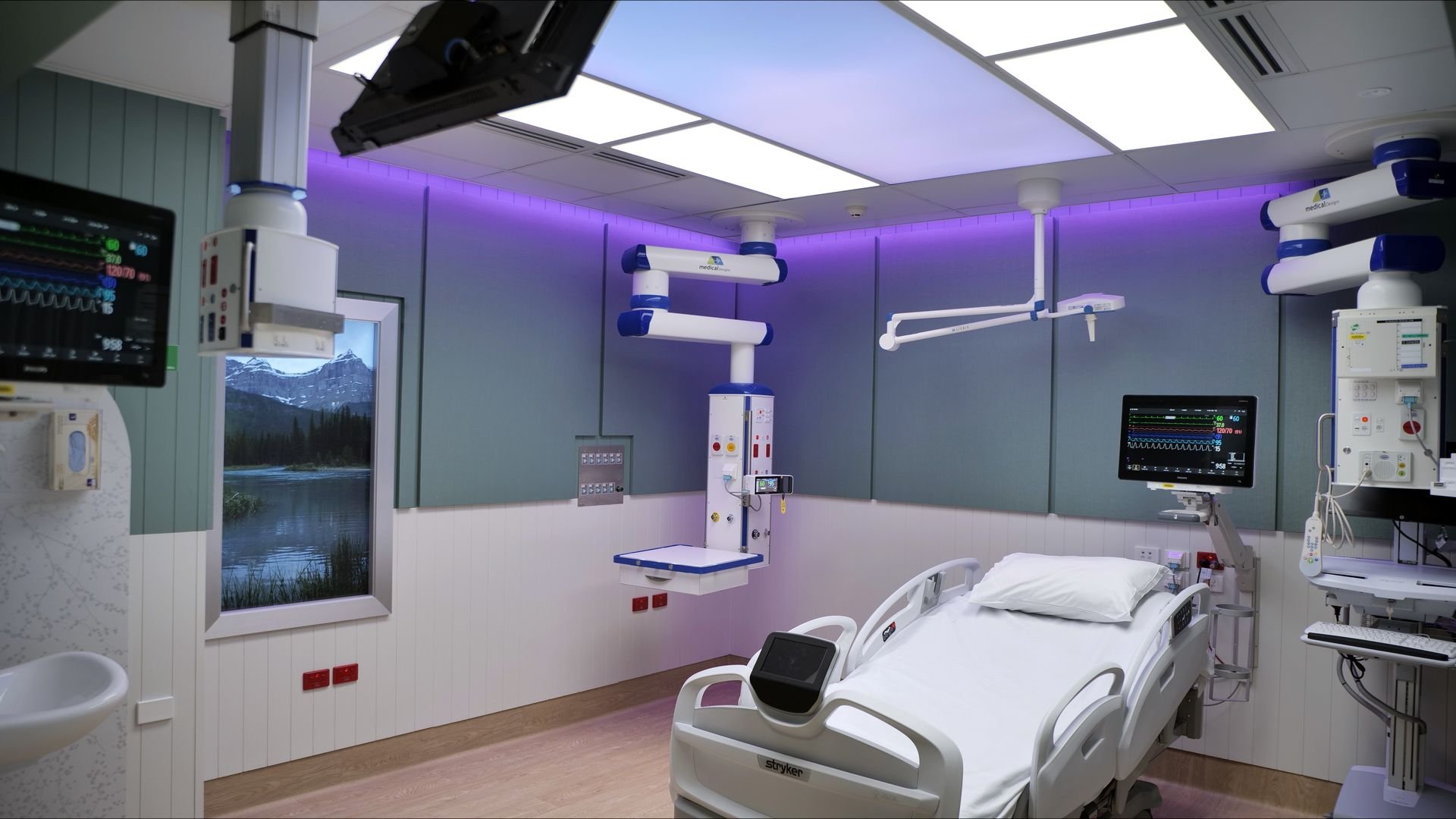Clinical Research - Driving comprehensive studies on the safety and effectiveness of promising advances in patient care.
Research designed to improve outcomes for ICU patients and their quality of life following critical illness.
The quality of care provided and survival rates in Australian lCUs is exceptional, however research suggests that the quality of life after surviving a critical illness could be improved for a large percentage of patients.
The research projects implemented by CCRG’s Clinical Research Team are aimed at reducing healthcare costs and hospitalisations, overcoming some of the traditional challenges of ICU and improving long-term recoveries, so patients not only SURVIVE critical illness but THRIVE long after.
Three broad interconnected themes underpin our Clinical Research Program:
Environment – Researching the effect the physical ICU environment, including sound and light, has on long-term recoveries and how we can improve outcomes.
Technology – Investigating the efficacy of the latest technologies to ensure patient safety and evidence-based application.
Mental Health and Wellbeing – Quest to understand how innovations in intensive care can help prevent or overcome poor mental health outcomes.
Patients are at the core of everything we do.
To ensure our research is patient-focused, clinically relevant and translatable, CCRG has established a Consumer Advisory Group who we consult with regularly.
The Consumer Advisory Group consists of past patients (consumers of the healthcare service), family members and healthcare workers. Consumers are compensated for their time and experience, and the aim is to engage with them at every stage of a project’s lifespan, from inception to implementation.
CCRG Clinical Research Initiatives
Environment
-
ICU of the Future
A decade in the making, CCRG’s flagship clinical research project, the ICU of the Future is reshaping the ICU experience to improve survival rates, optimise recovery and quality of life beyond the hospital.
The ICU environment has a strong influence on patient health and wellbeing. The ICU of the Future model redesigns the traditional bedspaces to combat some of the environmental conditions that contribute to poor recoveries, such as light and sound.
The project cumulated in the world-first redesign of two bedspaces at The Prince Charles Hospital in 2023 and is now set for national and international roll out.
-
Are microplastics the new asbestos?
Micro- and Nano-plastics (MNPs) are a pressing global health concern, with growing evidence that they can accumulate in the human body through food, water, air, and even medical equipment. MNP have the potential to disrupt biological systems – by triggering inflammation, carrying toxic chemicals, or interfering with cellular processes, raising urgent questions about their role in chronic disease, fertility and overall wellbeing.
As exposure is unavoidable in modern life, CCRG is undertaking significant research to develop new strategies to reduce exposure to MNPs during interventions such as cardiopulmonary bypass surgery and ECMO, an invasive life-support therapy.
-
Breathing easier in the ICU
Patients undergoing open-heart surgery are susceptible to post-operative complications, such as poor lung function. CCRG are investigating the use of ultrasound, a commonly used bedside diagnostic tool, to measure how well lungs are expanding after surgery, with the hope of identifying specific patterns that predict breathing complications before they happen.
-
Can ultrasound help predict poor post-operative outcomes?
Patients undergoing open-heart surgery are susceptible to post-operative complications, such as poor lung function. CCRG are investigating the use of ultrasound, a commonly used bedside diagnostic tool, to measure how well lungs are expanding after surgery, with the hope of identifying specific patterns that predict breathing complications before they happen.
Technology
-
Can ultrasound help predict poor post-operative outcomes?
Patients undergoing open-heart surgery are susceptible to post-operative complications, such as poor lung function. CCRG are investigating the use of ultrasound, a commonly used bedside diagnostic tool, to measure how well lungs are expanding after surgery, with the hope of identifying specific patterns that predict breathing complications before they happen.
Mental Health and Wellbeing
-
Can ultrasound help predict poor post-operative outcomes?
Patients undergoing open-heart surgery are susceptible to post-operative complications, such as poor lung function. CCRG are investigating the use of ultrasound, a commonly used bedside diagnostic tool, to measure how well lungs are expanding after surgery, with the hope of identifying specific patterns that predict breathing complications before they happen.





